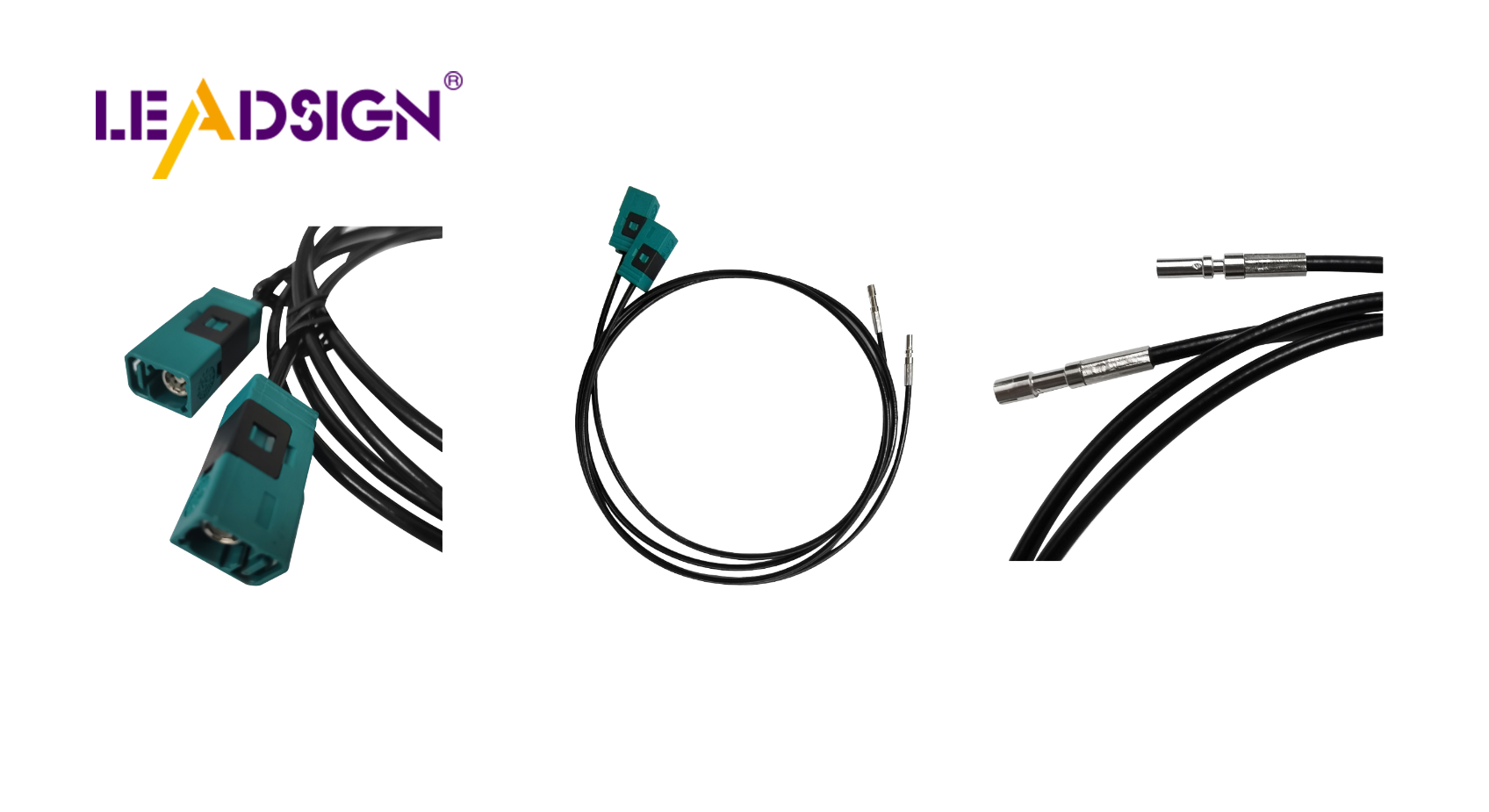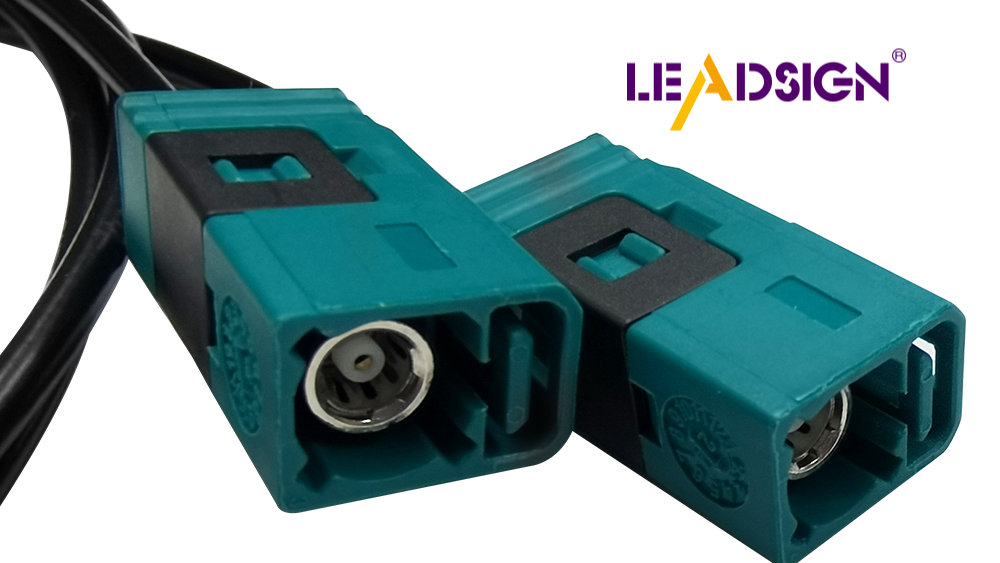How to Identify Automotive Electrical Connectors Types for Replacement

Finding the right automotive electrical connectors types is crucial for your vehicle. You might encounter the need to replace them as they age, corrode, or break. Factors such as water exposure or heat can cause connectors to fail. Identifying the specific type of connector is challenging given the variety available. Consider aspects like the number of pins, connector shape, and color to make an informed choice. This proactive approach prevents further issues and ensures optimal performance of your vehicle.
Understanding Automotive Electrical Connectors Types

Knowing about car electrical connectors is important. They help your car's electric parts work well.
Basic Parts of Electrical Connectors
Pins and Sockets
Pins and sockets are key parts of connectors. Pins are like plugs, and sockets are like outlets. This setup makes wires connect securely. Good pins and sockets last long. They don't rust easily or shake loose in cars.
Housing and Insulation
Housing and insulation keep pins safe. Housing is a tough cover that stops damage. Insulation keeps wires from touching each other wrongly. In cars, these must handle heat and rough use. This strength helps them stay good for a long time.
Common Car Electrical Connector Types
Knowing different connector types helps you pick the right one.
Blade Connectors
Blade connectors are very common in cars. They have flat metal pieces that fit into slots. You see them where quick changes are needed, like fuse boxes. They're easy to put in and take out, great for fixing things often.
Bullet Connectors
Bullet connectors look like small bullets. They fit tightly into matching sockets, saving space where it's tight. They're simple to use, making repairs easier.
Multi-pin Connectors
Multi-pin connectors have many pins in one case. They're used in complex systems needing lots of connections, like engine controls or radios. They let many signals pass at once, keeping your car working well.
By learning about these parts and types, you can choose the right connector when fixing or changing them in your car.
Steps to Find Connector Types
Finding the right car electrical connectors is key for your car. Follow steps to pick the correct connector for replacement.
Looking Closely
Looking closely is the first step in finding car electrical connectors. You learn a lot by just looking at it.
Finding Maker Marks
Makers often put marks or logos on connectors. These marks help you know where it's from and its details. Look for these signs on the cover or near pins. They give hints about the type and if it fits your car.
Checking Shape and Size
The shape and size tell you about its type. Look at its outline and size. Compare these with known car connector types. This helps you choose the right one.
Using Books and Guides
Books and guides have info about different car connectors. They help when looking isn't enough.
Online Help
Many makers have online catalogs. These let you search by pin count, shape, and color. Use them to match your connector with choices available. Online chats also share tips from others who had similar problems.
Printed Books
Printed books are good for finding connectors too. They have pictures and details of different types. Keep one close for quick help when fixing your car.
Advanced Ways to Identify
Sometimes, advanced ways are needed to find connectors exactly right. These need special tools and skills.
Testing with Multimeters
A multimeter tests a connector's electric parts. By checking voltage and resistance, you see if it matches what’s needed. This tool makes sure the new connector works well in your car.
Asking Car Experts
If unsure, ask car experts for help. They know a lot about car electrical connectors types. They guide you so you avoid mistakes in replacing them. Their advice helps make smart choices, stopping future problems.
By doing these steps, you can find and replace car electrical connectors confidently. This not only boosts your car’s performance but also makes it last longer.
Things to Think About When Replacing Connectors
When you change car electrical connectors, think about a few things. This helps keep your car working well and safe.
Matching with Car Systems
Make sure the connector fits your car's systems. Match its details with what your car needs.
Voltage and Current Limits
Look at how much power the connector can take. These limits show if it can handle electricity safely. Wrong limits might cause overheating or breaking. Always check these to stop damage to your car’s electric parts.
Handling Tough Conditions
Think about where the connectors will be used. Car connectors face tough places like hot, wet, or shaky spots. Pick ones made for these conditions so they last long and work well.
Finding and Paying for Parts
How easy it is to find parts and their cost matter too. You want good parts that fit your budget.
OEM vs. Aftermarket Choices
You have two choices: OEM parts from the maker or aftermarket ones. OEMs fit perfectly but cost more. Aftermarkets are cheaper but quality varies. Check both to see which suits you best.
Buying from Good Sellers
Buy from sellers you trust. Make sure parts are real and good quality. David, who knows a lot about connectors, says it's important to research before buying:
"David was so great. Very thorough and made sure this special connector needed would work for me."
This shows why asking experts and buying from trusted sellers is smart to avoid bad parts.
By thinking about these things, you can change car electrical connectors easily, keeping your vehicle in top shape.
Finding and changing car electrical connectors helps your car work best. Here's a quick review:
Identify: Look closely, use books, and ask experts to find the right connector.
Replace: Check if it fits, can handle tough places, and buy from trusted sellers.
For easy replacement, remember these tips:
Avoid Common Pitfalls: Knowing problems helps save time and money. One person said, "Knowing common connector problems saves you time and money while keeping your car running well."
Seek Professional Help: If unsure, ask an expert. As David shared, "David was so helpful. Very careful and made sure this special connector would work for me."
By doing these steps, you make sure the connector change is good, keeping your car in great shape.
See Also
Exploring Ford Fakra Connectors in Depth
Essential HSD Connectors in Automotive Sector
Significance of FAKRA Connectors in Auto Uses

